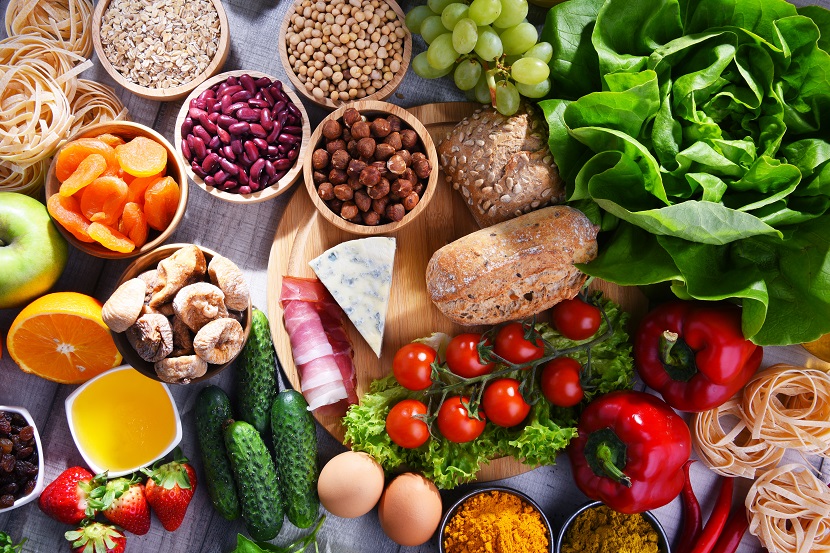
When we talk about healthy eating, the keyword is “varying”, but what it means to have a varied diet? Why is it so important to vary what we eat?
Foods, in addition to guaranteeing the right energy intake, are useful to provide some nutrients necessary for the health of our organism like amino-acids and essential fatty acids, vitamins, minerals, fibres, water, etc.
First, it is fundamental to understand that there is not a “miraculous” and complete food that contains everything we need to live healthily.
For this reason, when we talk about balanced nutrition, we focus on the importance of combining foods from different groups:
-
Cereals (and by-products) and tubers.
-
Fruits and vegetables.
-
Meat, fish, eggs, legumes.
-
Milk (and by-products).
-
Cooking and dressing fats.
Each food has its peculiar nutritional characteristics and learning to combine them in the right ways and portions can guarantee the right nutrient intake, remaining at the same time inside an energy intake adapted to our necessities and to our lifestyle.
So, varying the diet means making choices that allow building a complete and balanced eating style, able to bring psychophysical benefits in general, diversifying tastes, avoiding monotony, and, at the same time, preventing nutritional imbalances.
In this article, we will use the words of CREA’s experts, reported in the Guidelines for healthy eating, to debunk some misconceptions about varied nutrition:
-
It is not true that to lose weight it is necessary to eliminate one or more food groups.
To lose weight, it is necessary to follow a hypocaloric diet (which means a lower calorie intake to stimulate the body to consume the fat reserves accumulated for this purpose) with exercise. A hypocaloric diet alone does not involve the elimination of some types of food or nutrient, but mainly a portion reduction.
-
It is not true that we must underestimate the lunch break.
Lunch is a fundamental meal, and it is not enough to consume a snack or some fruit at your work desk to have enough energy to face the rest of the day until dinner.
If you cannot attend a cafeteria, it is important to find an alternative place which allows us to take a walk to reach it, to take a break from the screen and to consume lunch in the company of others, in a pleasant and relaxing environment.
-
It is not always true that having many foods available is always a positive thing.
Varying means substituting, not adding.
Sometimes indeed having a great variety of foods available bring us to eat more and to choose foods that satisfy us more, which often do not correspond to the healthier ones.
It is important to pay attention to portions and to keep meals under control.
-
It is not true that the Mediterranean Diet is an obsolete food model.
There are many studies that support this model for its balanced nutrient intake and for its ability to prevent many chronic degenerative pathologies.
The Mediterranean Diet involves portion control too and although nowadays the lifestyle of most people is very chaotic and full of out-of-home meals, it is still possible to follow this diet doing the right choices at the restaurant too.
-
It is not true that you lose or gain weight in a day or in a week.
The optimal weight is the result of the constant maintenance of correct food habits.
The casual excesses are part of the standard because, besides physical health, the nutrition must also respect gratification, conviviality, social relationships, and psychological well-being.
The important thing is to know how to balance excesses in the following days or meals.
Bibliography:
http://www.crea.gov.it/web/alimenti-e-nutrizione/-/linee-guida-per-una-sana-alimentazione-2018